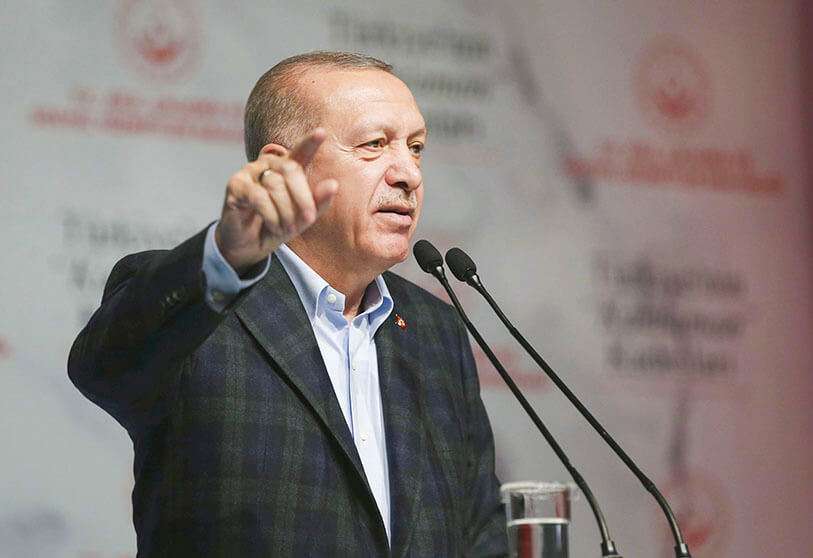Turkey continues to purge the opposition

Turkey has issued arrest warrants for 118 people, mostly members of the military and security forces, suspected of links to the network that the Turkish government claims was behind the 2016 coup attempt, according to the Istanbul Prosecutor's Office.
The Istanbul Prosecutor's Office issued a warrant for the arrest of those allegedly involved, including 98 serving soldiers, suspected of collaborating with the exiled preacher Fethullah Gülen, who is accused by the Turkish regime of instigating the failed coup d'état in 2016. Among those named are a colonel, three officers and several lieutenants and sergeants, according to CNN Türk.
The prosecutor's office accuses the accused of having maintained contact with groups linked to Gülen through the use of public telephones. Fethullah Gülen is a theologian and expert on Islam who founded the movement called Hizmet and was for many years an ally of Recep Tayyip Erdogan. The relationship was broken in 2013, when the president (then prime minister) accused the preacher of encouraging corruption investigations into Erdogan's own Justice and Development Party (AKP) executive and also of encouraging protests against the government itself. Since then, 'Sultan' Erdogan has been accusing him of destabilizing the country and of being behind the 2016 uprising (which was seen by several analysts as an artificial ploy of power to further unify the country around the presidential figure).

The evidence against the defendants is based on the statements of other alleged supporters of Gülen arrested earlier. Last Sunday, an important Turkish Navy commander was also arrested for coup ties.
Since the July 2016 coup d'état, more than 8,500 members of the Turkish armed forces, including 150 generals, have been expelled from the army because of their alleged links to the 'Gülenist' movement, which is about 3.5% of the Ottoman military body.
In total, more than 120,000 officers were dismissed for this reason and some 50,000 are in prison.
In addition to this operation against the military establishment, the harassment exercised by the official regime against certain sectors of the opposition, such as the one represented by the Kurds, has been added.
In this sense, for several weeks, different Turkish cities were the scene of a series of strong protests against the dismissal and arrest in May of four mayors of the opposition People's Democratic Party (HDP, for its acronym in Turkish) accused of being linked to the guerrilla of the Kurdistan Workers' Party (PKK, for its acronym in Turkish).
This PKK group is considered a terrorist force by Turkey itself, the United States and the European Union (EU), and the relationship with the HDP has been used by President Recep Tayyip Erdogan's administration to persecute significant elements of this left-leaning, pro-Kurdish political formation.

The four imprisoned rulers ruled in localities in southeast Turkey, where the majority of Kurds living in the Ottoman nation reside (a population that some sources estimate at between 15 and 20 million citizens). The government of the Eurasian country has been carrying out a campaign for a long time against the Kurdish ethnic group, which it considers responsible for terrorist acts in the south of the national territory.
The strategy of the Turkish government against the Kurds has remained firm. Already on 9 March a court of law sentenced the deposed mayor of Diyarbakir, Adnan Selcuk Mizrakli, to nine years in prison for "belonging to a terrorist organisation". In the meantime 12 MPs of the HDP, the third group in the Turkish Parliament have been in prison since 2016 on charges of links with Kurdish militias.
The Turkish state led by Recep Tayyip Erdogan thus accuses the HDP of having close links with armed groups of the PKK, which has led to the prosecution of thousands of its members and some leaders. Meanwhile, the HDP denies supporting insurgent activities.









